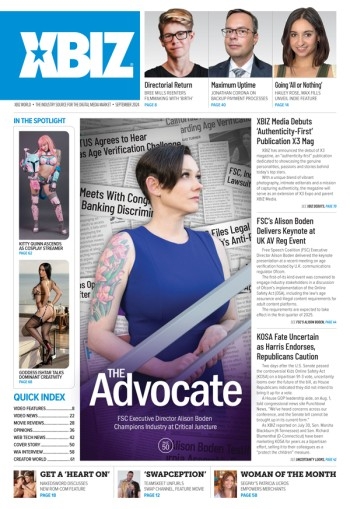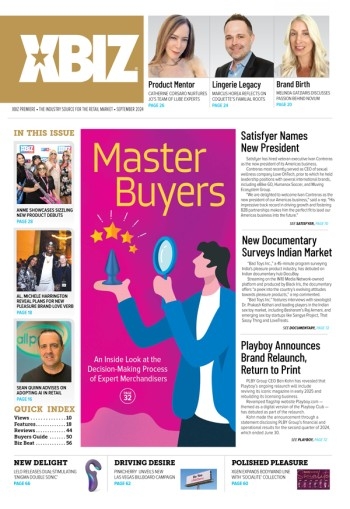On Monday, The United States Supreme Court, in a non-unanimous ruling, declared that Congress may compel public libraries to install anti-pornography filters on their computers, stating that the use of filters does not violate the First Amendment rights of patrons, despite the fact that many legitimate Web sites will also be affected by the use of this imperfect technology.
Supporting the belief that pornography in public libraries posed a serious problem, the Supreme Court ruled 6-3 in favor of reinstating a law requiring libraries which receive federal funding to institute filtering software designed to block a minor's access to pornography. The government, which through various programs has funded the growth of Internet access in public libraries, was opposed to the use of these resources for the viewing of pornography – arguing that there should not be a special case made for computer access to any objectionable material, since neither ‘adult’ movies nor magazines are allowed in public libraries.
Last year, a three-judge panel in Pennsylvania determined that the Children's Internet Protection Act was unconstitutional, on the grounds that it forced libraries to act as censors – violating the First Amendment, and compounded by the fact that current filtering programs heavy-handedly block access to many non-pornographic materials. "A statutory blunderbuss that mandates this vast amount of over-blocking abridges the freedom of speech protected by the First Amendment," wrote Justice John Paul Stevens, who along with Justices Ruth Bader Ginsburg and David Souter felt that the legislation excessively restricted ‘legitimate’ informational materials.
Librarians in Opposition
The American Library Association (ALA) immediately expressed disappointment in the Supreme Court’s upholding of this aspect of the Children’s Internet Protection Act. “The decision, however, is very narrow in that Justices Kennedy and Breyer did not join Chief Justice Rehnquist's opinion, they only joined the judgment,” said Judith Krug, director of the American Library Association’s Office for Intellectual Freedom. “Justices Kennedy and Breyer joined the judgment because they believe adult patrons need only ask the librarian to ‘please disable the filter’ and need not provide any reason for the request. In light of this, we expect libraries that decide they must accept filters to inform their patrons how easily the filters can be turned off.” Part of the opinion by Justice Kennedy mandates that filtering companies ensure that their products can be quickly and easily disabled at the request of adult library patrons.
The ease of use and efficacy of software filters has long been a sore spot for opponents, especially given the fact that manufacturer’s have been very reluctant to provide lists of banned sites, as well as information on banning criteria and the algorithms used to determine a Web site’s ‘acceptability’ to the filtering system. This is particularly troublesome since it has been shown that filter providers have not limited their product’s reach based upon the accepted legal definitions of “harmful to minors” and “obscenity.” According to the ALA, “Library users must be able to see what sites are being blocked and, if needed, be able to request the filter be disabled with the least intrusion into their privacy and the least burden on library service.”
The ALA will be taking steps to work with major filtering companies in the hopes that they will disclose the required data, and then “share the information with the thousands of libraries now being forced to forego funds or choose faulty filters.” The ALA will also assist libraries in selecting the most appropriate products and will provide information on deployment, usage, and policy setting, and “will do everything possible to support the governing bodies of these local institutions as they struggle with this very difficult decision” of either complying with a Congressional mandate, or of operating without federal funding.
The Big Picture and the Bottom Line
So what does this ruling really mean to adult Webmasters? Well, in a ‘Big Picture’ sort of way, any new legislation that limits access to adult materials would seem to be a blow against us, but I contend that this is simply not the case. First off, the law does not say “No Porn in Libraries!” It says “Public Libraries that want to accept public funding must use filters to prevent minors from accessing pornography…”
This is a good thing, as we don’t want children enjoying (or as our opponents would have you believe “being harmed by”) adult materials. Furthermore, the law also says “adults can turn the filter off to see whatever they want…” allowing consenting adult patrons to ‘easily’ access uncensored materials, while still shielding kids who do not have the benefit of caring parents (who are willing to exercise some personal responsibility and supervise their children’s use of the Internet) from potentially harmful materials. The more steps taken to keep kids from porn while allowing adults to have unfettered access, the longer our industry will survive.
But beyond these broader issues, should adult Webmasters (the folks who are paying to put porn on the Internet in hopes of turning a profit) really be concerned about public access in libraries? No, not really…
Personally, I don’t care if people (yes, including consenting adults) are able to access porn in public places (libraries, or otherwise). Why should I? Do you think that someone sitting in a library is going to pull out the plastic and join my wife’s pay site? If he did, the next thing he’d whip out would get him arrested! And even if he ‘got away with it’ – I’m not comfortable with the idea of perverts ‘banging one out’ in public at the library, or Starbucks, or Joe’s Internet Café or at a mall’s kiosk – in front of God and everybody – including children. THAT’s the sort of thing that harms our industry! And frankly, if he could afford a membership fee, he’d be able to afford a computer to enjoy his porn in the privacy of his own home…
So where does that leave the public library-bound porn fiend? Surfing link sites and TGPs, hoping for an anonymous free porn fix – being a bum and burning our bandwidth. I for one don’t need to be supporting another freeloader’s carnal cravings. Do you?
And that’s the bottom line: public library porn patrons are IMHO quite unlikely to be paying customers, and as such hold almost zero interest for me. Whether you agree or disagree – or have an opinion one way or another about filters in public libraries, post your comments on the thread below. ~ Stephen






